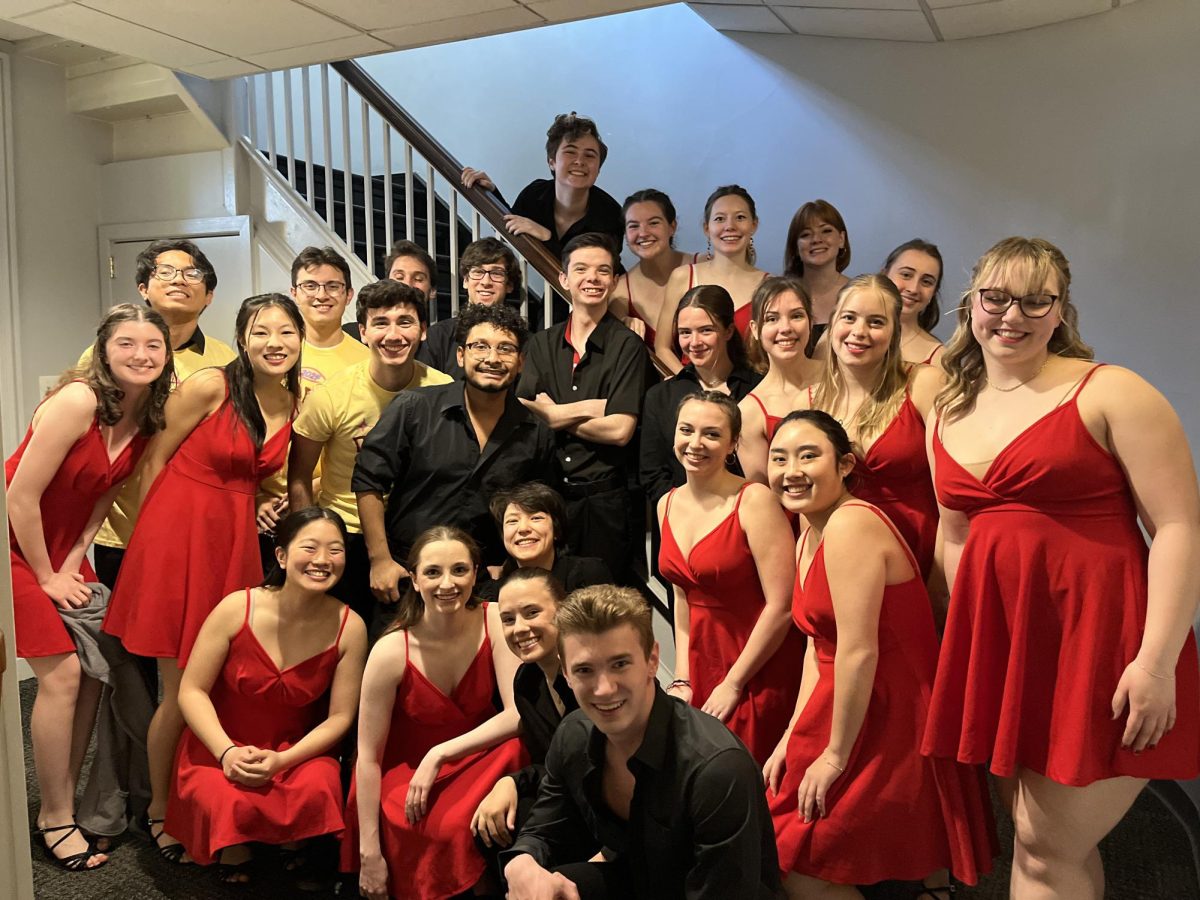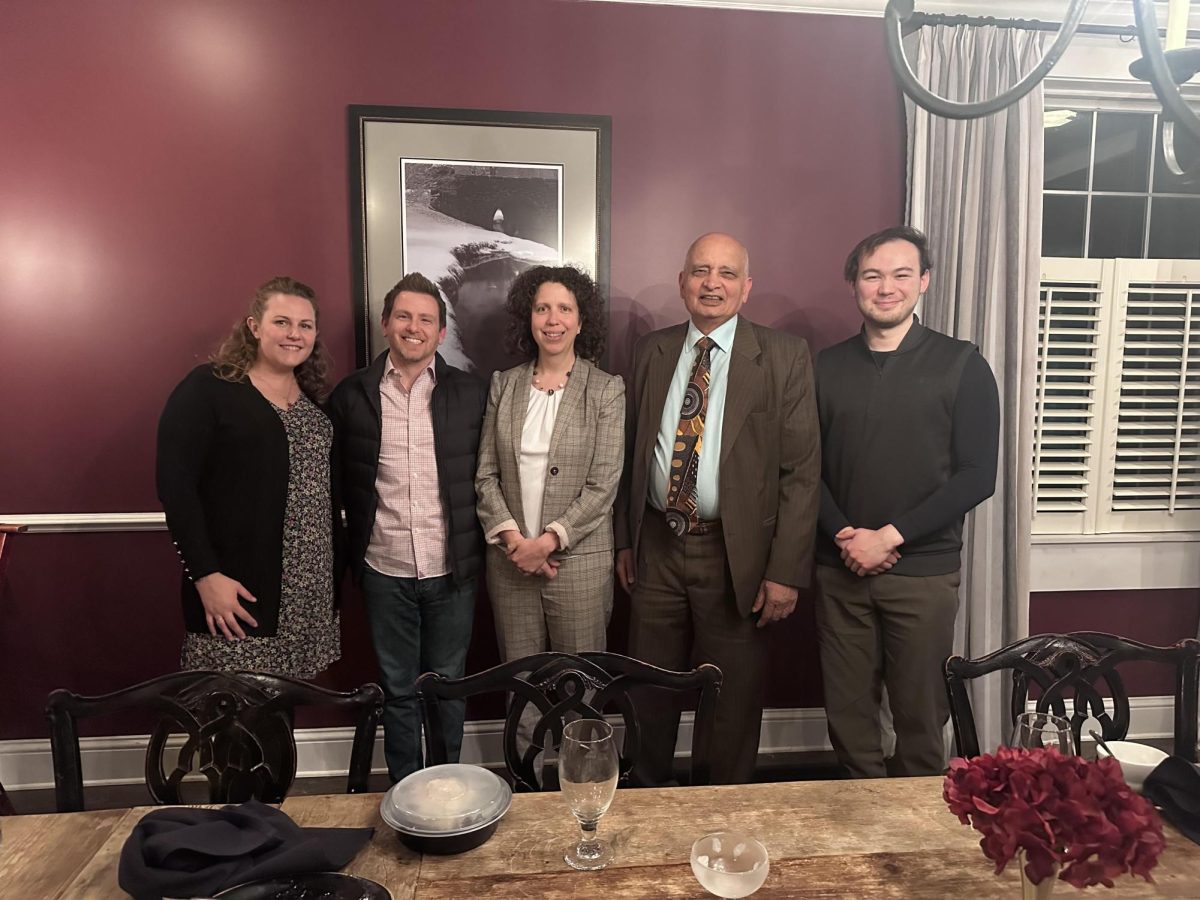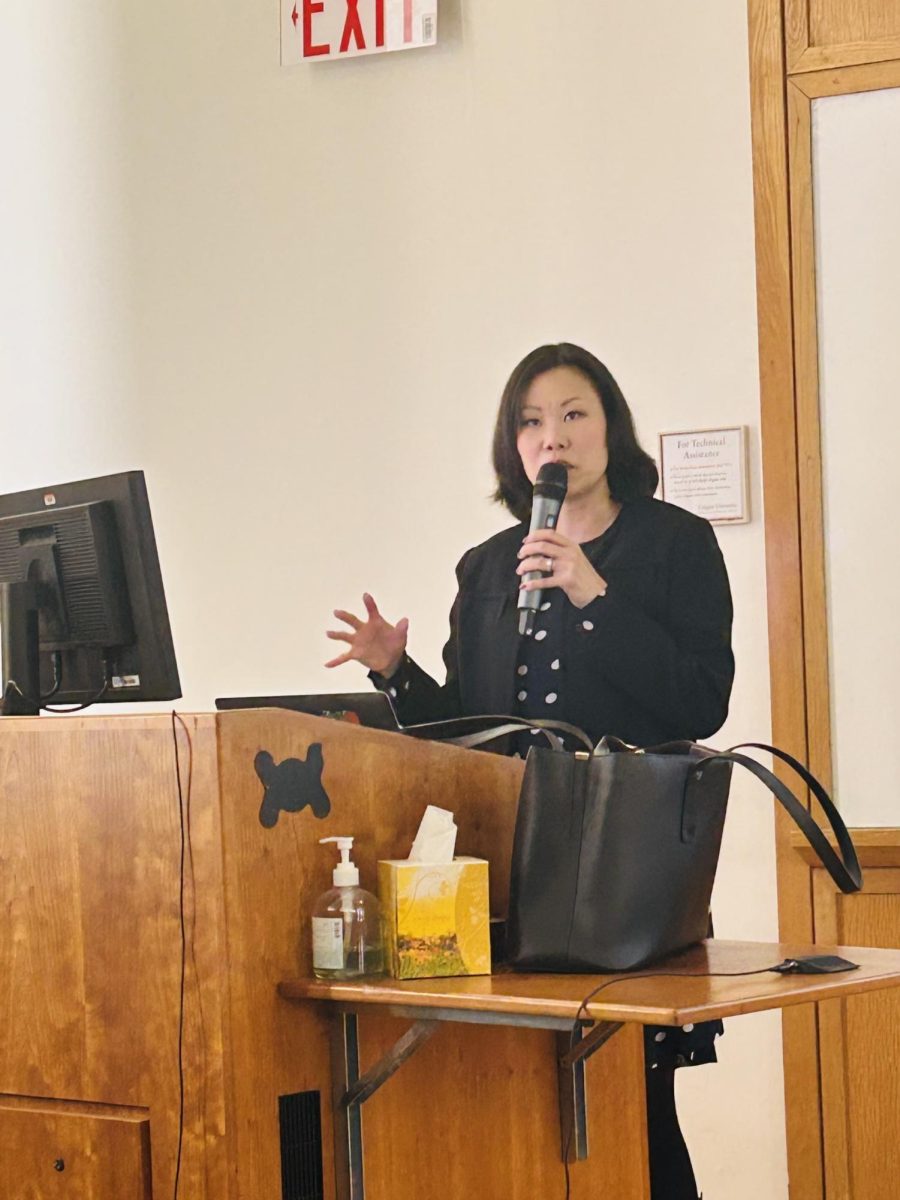Colgate University hosted football star and five-time New York Times best-selling author Tim Tebow on Sunday, Feb. 18. His agenda included a Q&A session for student-athletes at Cotterell Court and a church service at the University Chapel, open to all.
Tebow has a host of athletic accolades under his belt. After picking up two national championships and a Heisman Trophy at the University of Florida, the quarterback was drafted in the first round of the NFL and played three seasons — most notably for the Denver Broncos — before retiring from football in 2013. Tebow then made the unlikely transition from professional football to minor league baseball in 2016 when he signed with the Syracuse Mets, playing with them until his retirement in 2021.
Throughout his career, the best-selling author, speaker and football analyst has passionately dedicated himself to philanthropic pursuits — his most notable project being the Tim Tebow Foundation (TTF), a spiritual-based non-profit organization he founded in 2010. The TTF fights against human trafficking and child exploitation, offering orphan care and prevention, medical needs and special needs ministry.
According to the organization’s website, TFF works to “Bring faith, hope, and love to those needing a brighter day in their darkest hour of need […] and fight for the MVP — the Most Vulnerable People around the world living in chaos and crisis.”
Tebow spoke to Colgate’s student-athletes to offer advice and encourage community involvement. Although Tebow’s organization is faith-based, the Q&A session revolved around athletics rather than religion. Pre-submitted questions covered topics from Tebow’s college football highlights to navigating health and wellness as a retired athlete.
Tebow spoke extensively about the difficulties of dealing with hate online and how the SEC spotlight impacted his self-image. He recalled reading Winston Churchill’s biography as a significant turning point in his relationship with social media.
“One of the things that Winston Churchill understood was every now and then you [have] to take a stance that other people might not understand at the moment, but ultimately, when you look back, they will have respect for that stance, even though they might not necessarily agree with it,” Tebow said. “That was something that helped me when I was struggling with wanting to be liked, and also trying to figure out when and how I should stand for the things that I feel strongly about […]. So I almost reframed my mind to: What if I tried to earn people’s respect, not just their likes? Because likes are fickle — they come and go with one post, one phrase, one comment.”
Tebow spoke about dealing with loss and keeping confidence and team morale high against a tough opponent or a shaky first half.
“It’s so easy when we’re losing to think, ‘This is what went bad.’ We blame everybody else rather than saying, ‘Yes, it’s been a disappointing first half, but can we imagine what the second half is going to be?’” Tebow said. “When I was with the Broncos, one of the special things was that we got to have six comebacks in a row and set some different records. It was so special.”
Tebow elaborated on how his experience and success with the Denver Broncos taught him about teamwork and resilience.
“It wasn’t because we were the most talented, but I do believe it was a team that didn’t look around and point fingers, […] that’s what sets you up for the greatest comebacks,” Tebow said. “In the fourth quarter, when so many other people slow down, we’re not going to blink, we’re not going to hesitate […]. We’re going to be prepared and ready for that moment. Because it wasn’t a setback — it was a setup. And we were created for this moment.”
Tebow also touched on his experience with different coaching styles and what he’s been most receptive to as a player.
“What great coaches do is they paint a vision for their players, saying, ‘This is what you could be.’ But they also have to believe it themselves […]. If a coach picks that vision and believes in it authentically, the players are going to buy into it. They’re going to believe, too,” Tebow said. “The best teams I’ve ever been around are bent on that. Even though I was only with the Patriots for a couple of minutes before I got cut, it was incredible to see everyone rally around the vision of Coach Belichick.”
Head Men’s Golf Coach JP Kircher admired Tebow’s outlook on team cohesion as well as his balanced approach to success and interpersonal relationships.
“I found it very interesting how he pursues excellence so well and consistently in all areas of his own life and that he does a great job of presenting who he is without saying, ‘This is the way for everyone,’” Kircher said. “I’m super impressed with his focus on relationships and connecting with people at a deeper level.”
A message of self-worth and vulnerability shot through the Q&A. Tebow strongly encouraged listeners to know their worth and keep a positive outlook on change. He drove this point home in response to a question about his mindset after getting released from the NFL.
“[Getting cut] was a reminder to me that it wasn’t a setback. It was actually a setup for where I am now and what I was created to do. You’re going to have things in your life that you think are setbacks, and I would challenge you to reframe your mind. Maybe it’s not a setback — maybe it’s your greatest opportunity,” Tebow said.
Emma Hatlem, senior captain of the women’s swim and dive team, appreciated Tebow’s perspective on post-athletics life.
“It was a super unique experience to be able to hear from Tim Tebow,” Hatlem said. “He gave us great insight into life outside of athletics and finding your purpose, and also spoke about some of his own personal experiences that have shaped his drive and purpose in life, which were very interesting to hear.”
Tebow concluded his remarks with a call to action to think beyond athletic success and to focus on helping others.
“Success is about you. Significance is about other people,” Tebow said. “At the end of your life, will you be more successful or more significant? Which one is going to matter more to you? Every single one of us has the opportunity to take our success and turn it into significance. The only way we do that is when we think bigger and outside ourselves.”
















